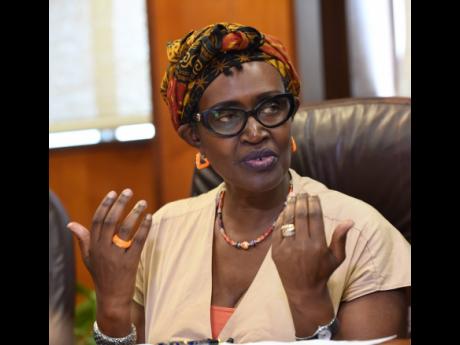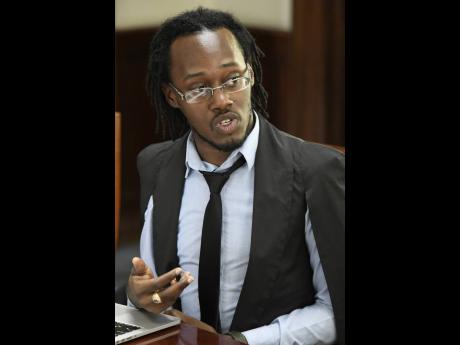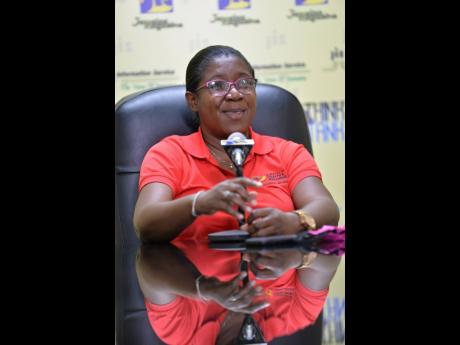Inequality threatening HIV/AIDS fight
Stakeholders urge abolition of buggery law, ending discrimination to tackle disease
Forty-one years on, it is no longer considered a death sentence but instead a chronic disease, in some cases inactive with on-time and consistent treatment. Still, inequality threatens efforts by the Joint United Nations programme for HIV/AIDS (UNAIDS) to eradicate the disease globally.
That’s the view of Winifred Byanyima, executive director of UNAIDS.
Each country has its own issues in the ongoing fight against HIV/AIDS – from racism and poverty in parts of the United States to gender inequality in African states. In Jamaica, however, perpetual discrimination against homosexuals and transgenders in particular is the recurrent theme, argued Byanyima.
“Nobody should be newly infected. Nobody should die of HIV because treatments are there, and many countries are able to provide them. But we are still seeing new infections and deaths, and that is to do with inequalities that drive this disease,” she emphasised.
“If you are racially discriminated against, if you are a woman or girl who is disadvantaged because of gender inequality, ... when those things come together, you will find persons not accessing the best that science has to offer.”
As it relates to the HIV/AIDS prevalence rate locally, Byanyima noted: “Here (Jamaica), the prevalence among gay and LGBT people are highest. For men who have sex with men, the prevalence among them is 30 per cent; and amongst transgender women it is 51 per cent. Among the homeless, it is 13 per cent.”
She said that discrimination against these groups thwarts their willingness to get tested and seek help, which, in turn, drives under-reporting and affects the reliability of HIV/AIDS data being collected locally.
The UNAIDS executive also shared with The Sunday Gleaner that of the 330,000 people reportedly living with HIV/AIDS in the Caribbean, 9,200 are children.
Byanyima, who was in Jamaica from November 6 to 9 and gave the keynote address at the National HIV Annual Review, outlined the many challenges UNAIDS is facing globally in stemming the HIV/AIDS scourge at a Gleaner Editors’ Forum last week.
The COVID-19 pandemic further compounded the issues, she said, distressed by the devastating impact it had on the HIV/AIDS fight globally, setting back years of hard work.
Byanyima’s concerns were supported by a study done by researchers at the Northern Caribbean University who, in July, reported an increase in the number of HIV/AIDS cases due to mental and economic strain brought on by COVID-19. The researchers cited a breakdown in sexual health practices during the lockdown periods.
STEADY DECLINE
According to a 2017 HIV/AIDS Epidemiology report published by the Ministry of Health and Wellness, the prevalence of HIV/AIDS in Jamaica was at 1.8 per cent; and in that year, there were 1,197 new infections, the majority of which were accounted for in Kingston and St Andrew, while Manchester had the least number of infections.
Males accounted for the higher number of new infections, even as the number of new HIV cases diagnosed declined by 41 per cent from the year before. The majority of the HIV/AIDS-related deaths occurred between ages 40 and 49, the report said.
Dr Alisha Robb-Allen, acting senior director of the health ministry’s HIV/STI Unit, told The Sunday Gleaner that at the end of 2021, there were 27,576 persons living with HIV in Jamaica as per a count by the National Surveillance Unit.
“There has been a steady decline in the number of new cases identified per year since the peak of 1,451 cases in 2006. The epidemiological data shows that for the last five years, the highest proportion of new cases per year was in the 15-24 age group population,” she said last week, noting that recent behavioural studies by the ministry cited a breakdown in public education among the youth and suggested a need for more active intervention there.
‘MORE SUPPORTIVE AND ENABLING’
In the meantime, Byanyima stressed that UNAIDS continues to push ahead with its 90-90-90 target, to ensure that 90 per cent of people living with HIV/AIDS know their status, that 90 per cent of them receive treatment, and that 90 per cent of those on treatment have viral suppression. Jamaica has achieved the first target, but only 45 per cent were on antiretroviral therapy and only 37 per cent were virally suppressed.
She also urged Jamaica’s Government to abolish the country’s buggery laws, a point Glenroy Murray, executive director of Equality for All Foundation Jamaica (a rebrand of J-FLAG), reiterated last week.
“We continue to call for the decriminalisation of consensual same-sex relationships between men. The buggery law is symbolic of state-sponsored homophobia, which often justifies and undergirds the stigmatisation and discriminatory attitudes,” Murray told The Sunday Gleaner.
“There also needs to be a commitment to promoting public health spaces as safe spaces for LGBT people, as well as active efforts to respond to discriminatory behaviours by healthcare staff and other providers.”
He emphasised, “In order to reduce the burden of HIV on the community, society needs to be more supportive and enabling.”



